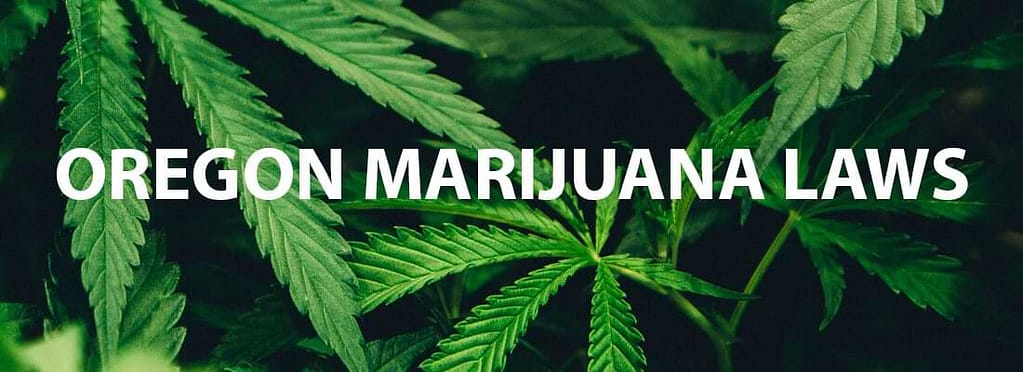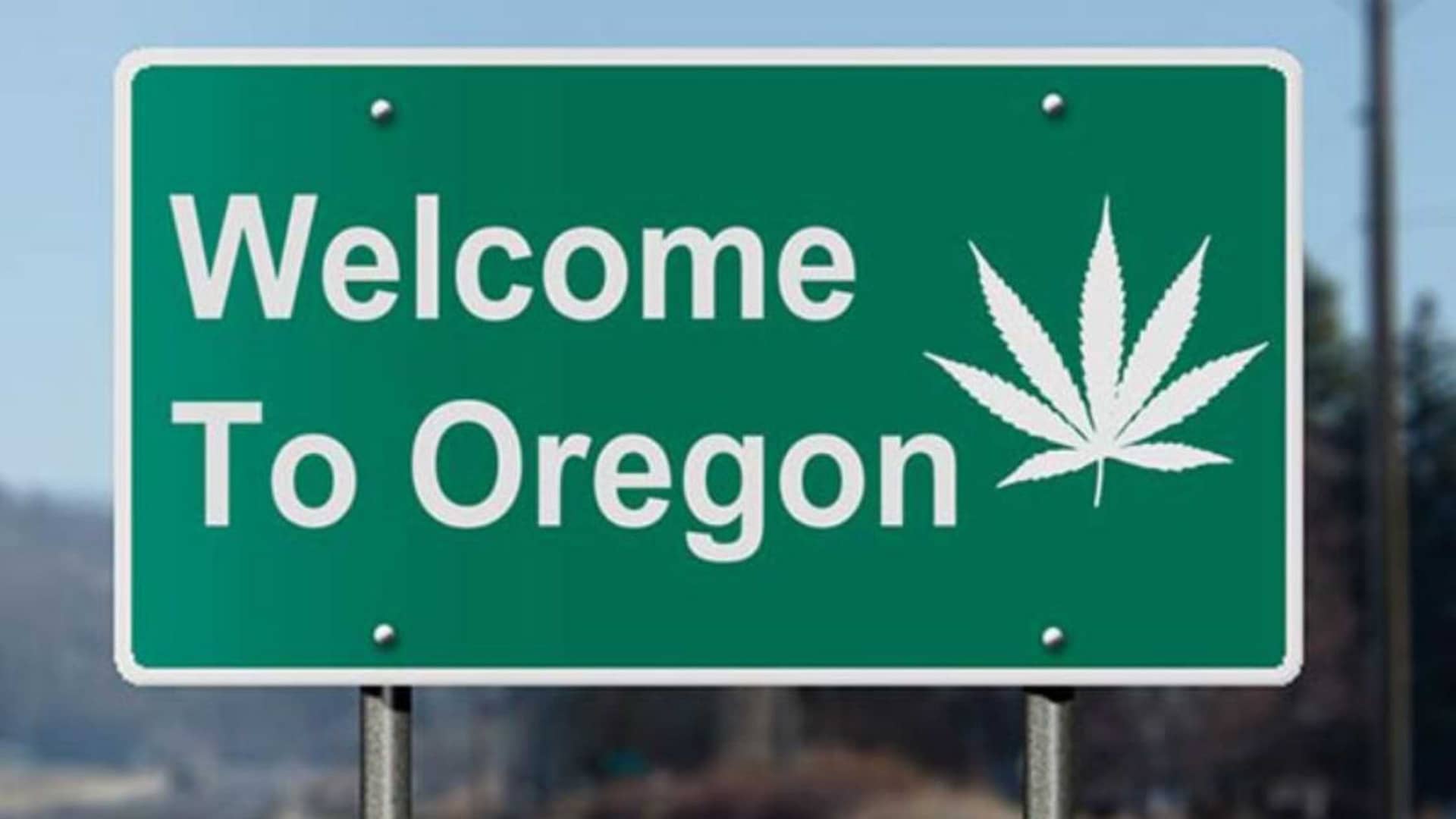In Oregon, both medical and recreational marijuana are now legal. This means that adults aged 21 and older can buy and possess marijuana without a prescription. However, if you're under 21 and need medical cannabis, you'll require assistance from designated caregivers.
These changes in Oregon's marijuana laws have created a unique landscape where people can access and enjoy marijuana for various purposes, all within the boundaries of the law. This comprehensive guide will help you understand the ins and outs of these regulations, ensuring you stay informed and compliant in the evolving world of Oregon marijuana laws.
Table of Contents
- 1 The History of Marijuana Legalization in Oregon
- 2 A Pioneering State
- 3 Recreational Marijuana in Oregon
- 4 Medical Marijuana in Oregon
- 5 Possession Limits and Cultivation Rules
- 6 Buying and Selling Marijuana in Oregon
- 7 DUI Laws and Marijuana Use
- 8 Public and Private Consumption Rules
- 9 Taxation and Economic Impact
- 10 Social Equity in the Cannabis Industry
- 11 Health and Medical Marijuana Regulations
- 12 Federal vs. State Laws
- 13 Quality Control and Testing Standards
- 14 The Future of Oregon Marijuana Laws
- 15 Conclusion
- 16 Frequently Asked Questions (FAQs)
- 17 1. Are there any age restrictions for purchasing marijuana in Oregon?
- 18 2. Can I grow marijuana at home in Oregon?
- 19 3. How does medical marijuana work in Oregon?
- 20 4. What are the legal limits for possession in Oregon?
- 21 5. Where can I purchase marijuana in Oregon?
- 22 6. Are there any restrictions on public marijuana use in Oregon?
- 23 7. What are the consequences of driving under the influence of marijuana in Oregon?
- 24 8. How is marijuana taxed in Oregon, and where do the tax revenues go?
- 25 9. What is the current status of social equity in Oregon's cannabis industry?
- 26 10. How do federal laws affect marijuana in Oregon?
The History of Marijuana Legalization in Oregon

Oregon's journey towards marijuana legalization is a fascinating one. The state began the process of change in the late 20th century. It decriminalized the possession of small amounts of marijuana in the early 1970s, reducing penalties for minor offenses. In 1998, Oregon made history by becoming one of the first states to legalize medical marijuana.
A Pioneering State
In 2014, Oregon made a big change. They said it's okay for adults 21 and older to have and use marijuana for fun. This was a very important moment in Oregon's history. It also helped change the rules about marijuana in the whole United States.
Recreational Marijuana in Oregon
For residents and visitors alike, the availability of recreational marijuana in Oregon is a welcome reality. Adults over the age of 21 can legally purchase and possess marijuana in various forms, including dried flower, edibles, and concentrates. The state has set possession limits, and it's essential to abide by these regulations to avoid legal issues.
Medical Marijuana in Oregon
Oregon has a well-established medical marijuana program that has been serving patients for several years. Qualifying patients can access medical cannabis with a doctor's recommendation. The program is designed to provide relief for individuals with certain medical conditions. Underaged individuals also be eligible to use medical cannabis, but they must do so through designated caregivers.
Possession Limits and Cultivation Rules
Understanding the possession limits is crucial to remain compliant with the law. As of the last update, adults can possess up to one ounce (28.35 grams) of usable marijuana in public and up to eight ounces (approximately 226.8 grams) of usable marijuana at home. Additionally, adults can cultivate up to four marijuana plants at home, provided they are kept in a secure and private location.
Buying and Selling Marijuana in Oregon

One of the most significant changes brought about by legalization is the emergence of licensed dispensaries. These establishments are regulated by the Oregon Liquor Control Commission (OLCC) and are the primary source for purchasing marijuana and marijuana products in the state. The presence of these dispensaries ensures that customers have access to a wide range of options, including different strains, edibles, and concentrates.
DUI Laws and Marijuana Use
While marijuana use is legal, driving under the influence is not. Oregon has strict DUI laws related to marijuana use. It's important to understand the legal limits and the consequences of driving under the influence. Oregon's law enforcement agencies have developed various tools and training to detect impaired driving due to marijuana consumption.
| Legal Limit for THC | Legal limit for THC blood concentration is 5 nanograms per milliliter (ng/mL) |
| Aspect | DUI Laws for Marijuana in Oregon |
| Penalties for DUI | – Fines, license suspension, and potential jail time for driving under the influence of marijuana |
| Implied Consent Law | Implied consent for blood, breath, or urine tests when suspected of DUI |
| Field Sobriety Tests | Police conduct field sobriety tests and drug recognition evaluations |
| Consequences for Refusal | Refusal to take a test can lead to license suspension |
| DUI Education and Treatment | Completion of a diversion program and treatment be required |
| Ignition Interlock Device | Installation of an ignition interlock device be required for certain DUI convictions |
| DUI and Marijuana Convictions | Prior DUI convictions can result in more severe penalties |
Public and Private Consumption Rules
Oregon law prohibits the public use of marijuana. This means that you cannot smoke or consume marijuana in public places, such as parks, sidewalks, or in a vehicle. It's essential to restrict your consumption to private settings to avoid legal issues.
New laws Of Marijuana in Oregon
Taxation and Economic Impact
The taxation of marijuana has been a boon for Oregon's economy. The state collects tax revenue from marijuana sales, and these funds are allocated to various programs and initiatives. The economic impact of the marijuana industry in Oregon has been substantial, leading to job creation and increased revenue.
Social Equity in the Cannabis Industry
Oregon is among the states striving to promote social equity in the cannabis industry. Efforts are being made to ensure that individuals who were disproportionately affected by previous marijuana laws have opportunities to participate in the legal cannabis market. Despite progress, there are still challenges to overcome in this regard.
Health and Medical Marijuana Regulations
Medical marijuana regulations are designed to ensure that patients have safe and legal access to cannabis for medicinal purposes. These regulations govern various aspects, including the conditions that qualify for medical cannabis use, patient registration, and the role of caregivers.
Federal vs. State Laws
Oregon marijuana laws exist within the framework of a complex legal landscape. While the state has legalized marijuana, it's important to note that federal law still classifies it as a Schedule I controlled substance. This has implications for both users and businesses operating in the marijuana industry.
| Aspect | Federal Law | Oregon State Law |
| Marijuana Status | Illegal; classified as a Schedule I drug | Legal for recreational and medical use |
| Possession Limits | Illegal | Legal possession limits defined by law |
| Enforcement | Federal agencies can enforce federal law | State agencies enforce state marijuana laws |
| Penalties | Federal penalties apply | State-specific penalties for violations |
| Banking | Limited access for marijuana businesses | State-regulated banking for the industry |
Quality Control and Testing Standards
Ensuring the quality and safety of marijuana products is a priority in Oregon. The state has implemented strict regulations regarding testing and quality control. These measures help protect consumers and ensure that they are getting safe and accurately labeled products.
The Future of Oregon Marijuana Laws

The landscape of marijuana laws in Oregon, like in many other states, continues to evolve. As attitudes towards marijuana change, there be further reforms and trends in the future. Staying informed about these developments is crucial for residents and businesses alike.
Conclusion
In Oregon, marijuana is okay for grown-ups. It helps people relax and feel better. But, you must be over 21 to use it. If you're not 21 yet and need it for medicine, a special person can help you. Oregon's rules are important to follow. They're there to keep people safe. Knowing these rules is a good idea. As the rules change and more people understand, Oregon's world of marijuana will keep growing. Stay smart, use it right, and enjoy what Oregon has to offer. That's the story of Oregon marijuana laws, and it's an ever-changing one.
Frequently Asked Questions (FAQs)
1. Are there any age restrictions for purchasing marijuana in Oregon?
Yes, you must be 21 years or older to legally purchase and possess marijuana in Oregon.
2. Can I grow marijuana at home in Oregon?
Yes, adults can grow up to four marijuana plants at home in a secure and private location.
3. How does medical marijuana work in Oregon?
Qualified patients can access medical marijuana with a doctor's recommendation. Caregivers also provide it to underaged patients.
4. What are the legal limits for possession in Oregon?
As of the last update, adults can possess up to one ounce of usable marijuana in public and up to eight ounces at home.
5. Where can I purchase marijuana in Oregon?
Licensed dispensaries regulated by the Oregon Liquor Control Commission are the primary source for purchasing marijuana in the state.
6. Are there any restrictions on public marijuana use in Oregon?
Yes, it is illegal to consume marijuana in public places.
7. What are the consequences of driving under the influence of marijuana in Oregon?
Driving under the influence of marijuana is illegal, and penalties can include fines, license suspension, and more.
8. How is marijuana taxed in Oregon, and where do the tax revenues go?
Marijuana is subject to taxation, and the tax revenues are allocated to various programs and initiatives in the state.
Efforts are underway to promote social equity, but challenges still exist in ensuring equitable participation.
10. How do federal laws affect marijuana in Oregon?
Federal law classifies marijuana as a Schedule I controlled substance, which can have implications for users and businesses operating in the industry.












+ There are no comments
Add yours